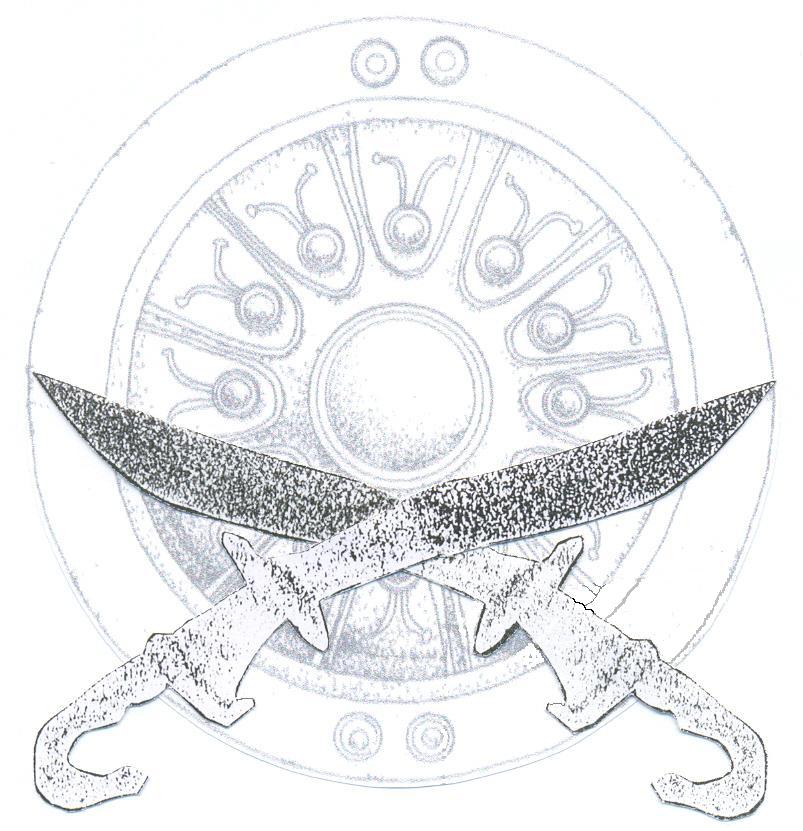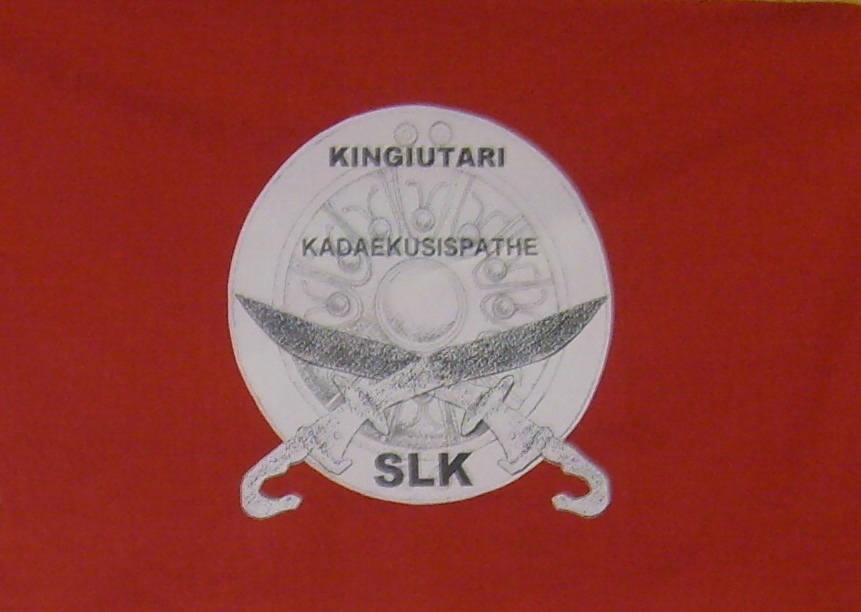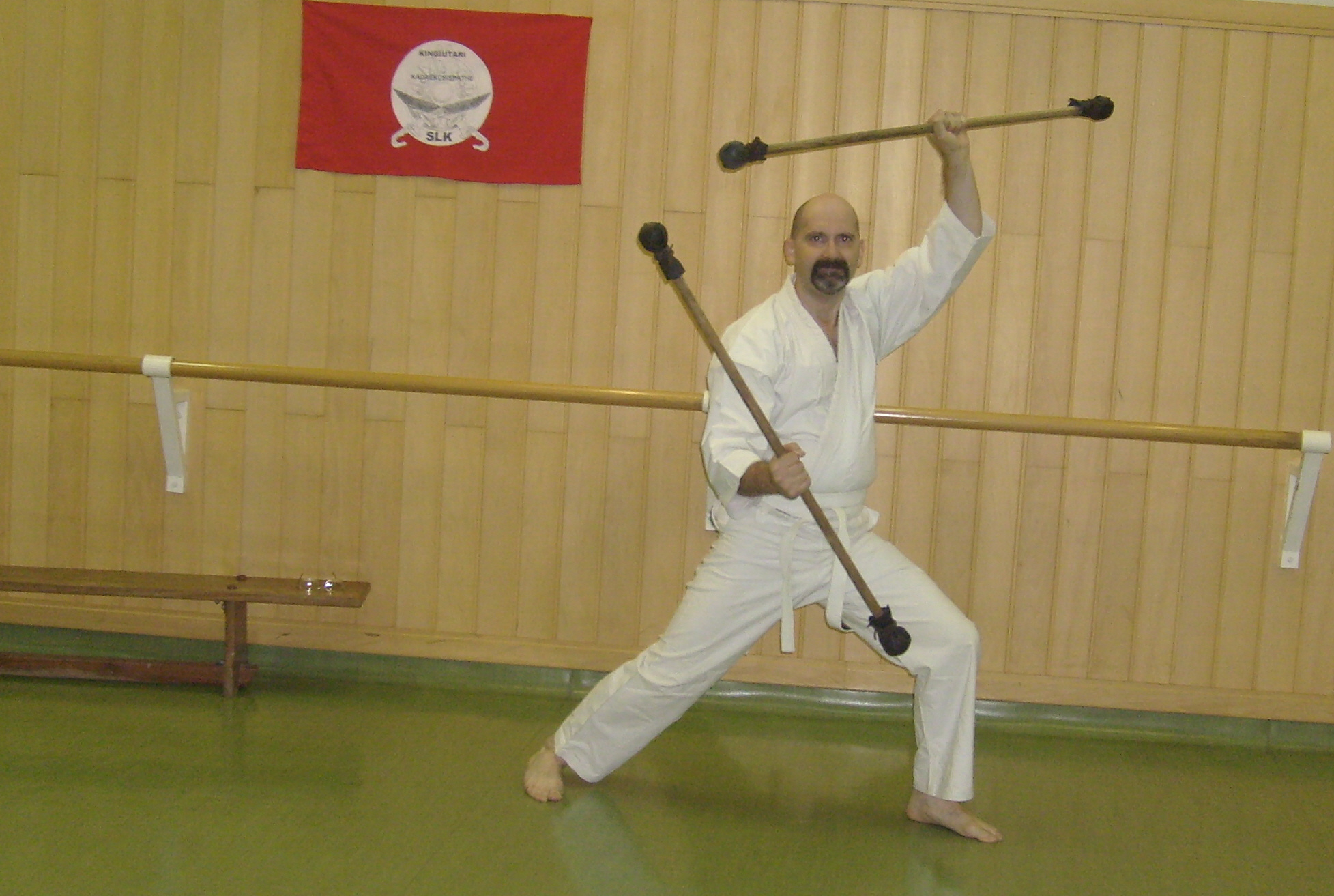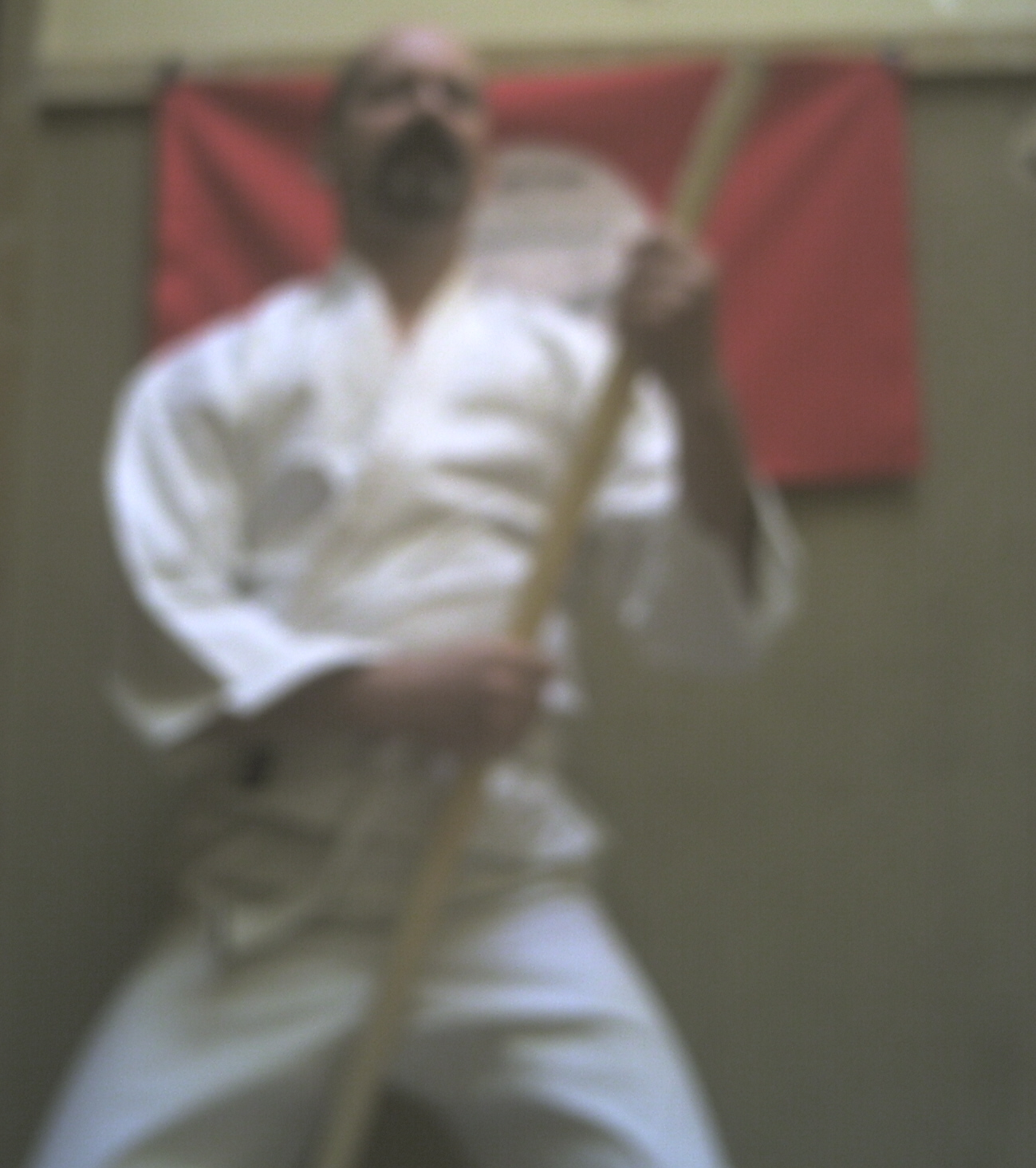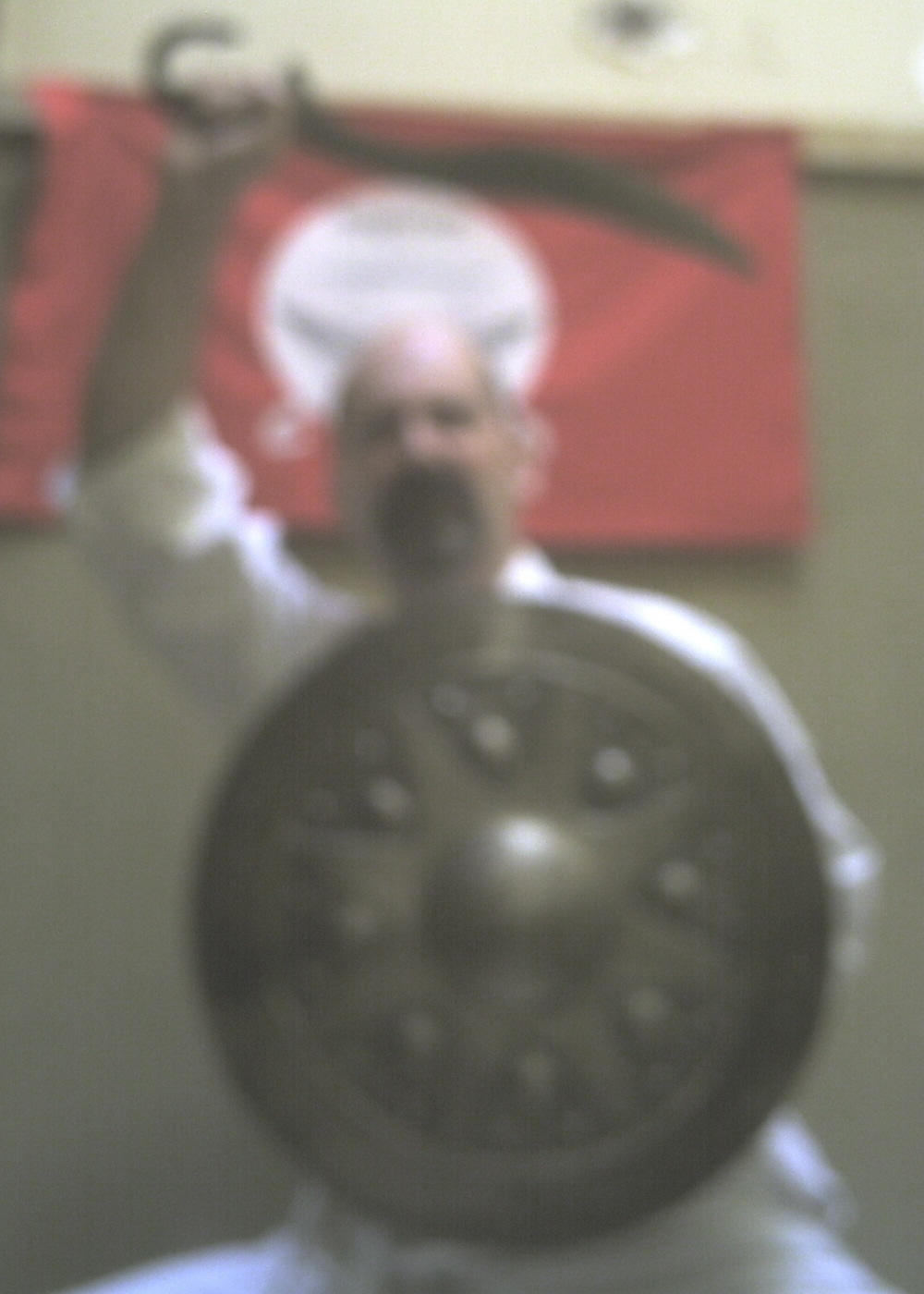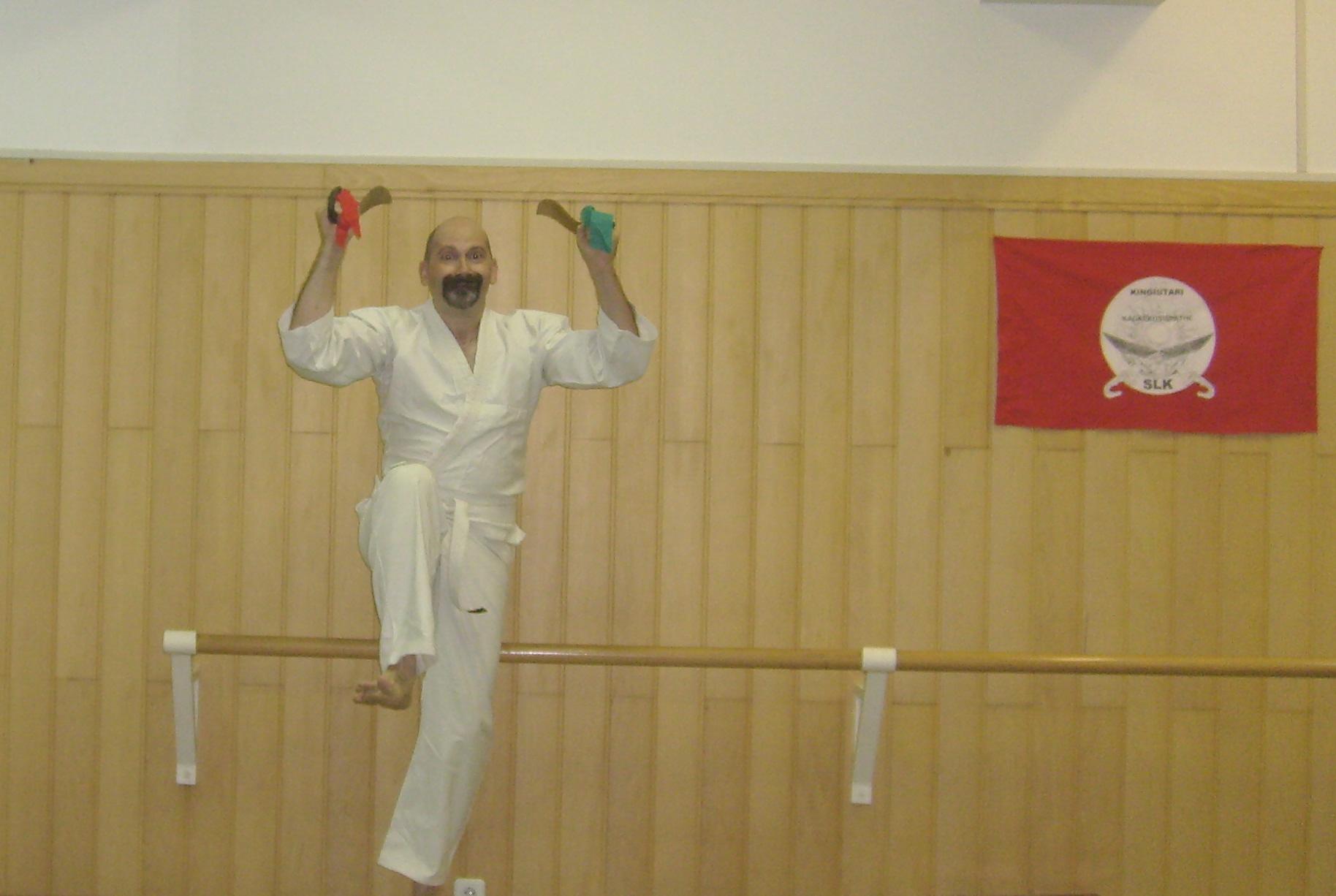The Lusitanian Martial Art
KINGIUTARI - Sacred, Traditional, Pure, and Mortal
KADAEKUSISPATHE - or, the efficacy of the sacred sword in the spiritual way of the warrior
|
||
Welcome to Kingiutari, the warrior's way Kingiutari is a system of the modern Lusitanian martial arts, and is the term used to represent all the styles, methods, techniques and white weapons of the Lusitanian martial arts. Kingiutari literally means "the way of the warrior" in modern Lusitanic (the reconstructed language based on old Lusitanian language spoken by few people today in Lusitania, the native name of the central region of Beiras in Portugal). Kingi is the Lusitanic word for a special kind of warrior (the king of himself) and Utari is the Lusitanic word for way or road. The epithet Kadaekusispathe from the words Kadaekus (sacred) and Ispathe (sword) literally means in Lusitanic "sacred sword", because these (the falkata and other swords) are the main weapon used in Kingiutari, other weapons are used as well, including shields, daggers, sticks, and axes. A Kingiutari demonstration includes physical exercises, sword and mock duel - armed and unarmed combat. It is a silent combat, where personal style matters the most. Today Kingiutari is practiced only by devotees of the modern Lusitanian Paganism (in special from the sect Revvane), it could be a method of physical fitness, and an empty-handed means of self-defence. Yet, it is tied to traditional ceremonies and rituals. Outsiders can not practice Kingiutari, because they do not have the mental preparation and the right social attitude concerning the Nature and the spiritual world. Every beginner of Kingiutari must know that the best warrior is the one who can to avoid a combat or fight. Lusitanian people have a long history of combat and resistance. Their methods involved specif elements of etiquette. For example, if an unarmed man was challenged to do battle, he was given time to chose or obtain his favourite weapon before engaging in a fight. There are a lot of histories about the fights and wars of resistance of ancient Lusitanian and Calaician warriors against the romans, wisigoths and other invaders in the past. Modern Kingiutari claims to had its origins in the 5th century before Christ. Legends claim too, that the art began with the warlike games of Lusitanians and other native peoples who lived in the territory of today Portugal. In the funeral of Viriato one of the last warlords of Lusitanian people for instance, hundreds of Lusitanian warriors died voluntarlly in combat with joy and honour during 5 days. Another example of the ancient origin of the modern Lusitanian martial art, Kingiutari, are other methods and martian arts still praticting in Portugal, such as the Jogo do Pau, the Galhofa, and even the martial dance of the Pauliteiros de Miranda of northern Portugal. Today modern Kingiutari mix some techniques of those and other martial arts. The art of Kingiutari is a serious form of self-defense, any kind of aggression is forbidden. All performances of Kingiutari often differ greatly from one another, yet they are executed with the utmost personal skill and precision. Anything less would result in the injury, or even death of one, or both of the participants in the combat.
The Lusitanian Association of Kingiutari (SLK) is a national and world wide body of Kingiutari (the Lusitanian Martial Art) located in Lusitania, in the centre of Portugal. It is a growing network of Kingiutari practitioners and students who have come together to help develop and bring back to life the spiritual, moral, and physical concepts of the ancient Lusitanian warrior path. We are not all here to gain the same insight, we are not all here with the same questions and most certainly, the same answers will not satisfy the quest in all of us, but as students and real devotees in the search of the true path of the inner and saint warrior (the kingi) our sole aim and mission is to enshrine and manifest collectively the power and consciousness of all that has been, is and will be. To respect the life, to honour our ancestors, to love our brothers and to improve ourselves is the philosophy and wisdom of the true warrior. Endobelis Ampilua, a Lusitanian and humble student of traditional and oriental martial arts is the creator of the Lusitanian Association of Kingiutari (SLK) in 2006.
Xastare is the Lusitanic name given to the sacred traditional weapons used in Kingiutari. The weapons are held in the highest esteem even higher than the art and teachers! Weapons have a special place where they are stored and presented. They are approached with respect and bowed to as if they were a living thing. It is believed that these weapons came directly from Arencio, the Lusitanian war Sun-God and they are manifestations of God's power on earth. Thus the power of God has been put into the hands of man. This is a huge responsability and something which is easily abused even with the best intention in mind. The sword has been for centuries revered by man as a symbol of his power and justice. The sword was a symbol of both temporal and spiritual power. For some reason in the past, the sword was seen as the primal force of the universe. The energy of the sword was worship as a manifestation of God. Many legends and stories have survived to present days, such as the king Salomon, and the celtic king Arthur and the Excalibur, the sacred sword, for example.
Defensive weapons: Shield in square- Qetra. Protection in leather for head- Kudo. Attack weapons: Short sword or greek-macedonian Falkata- Konkri. Long Celtician sword with two heads- Teki. Spears: Long Spear- Barçi. Other offensive weapons: Modern bow- Kamane. Ornaments: Dress- Sago.
Invocation prayers for battle The sword meditation The sword is the extension of my arm
|
||
